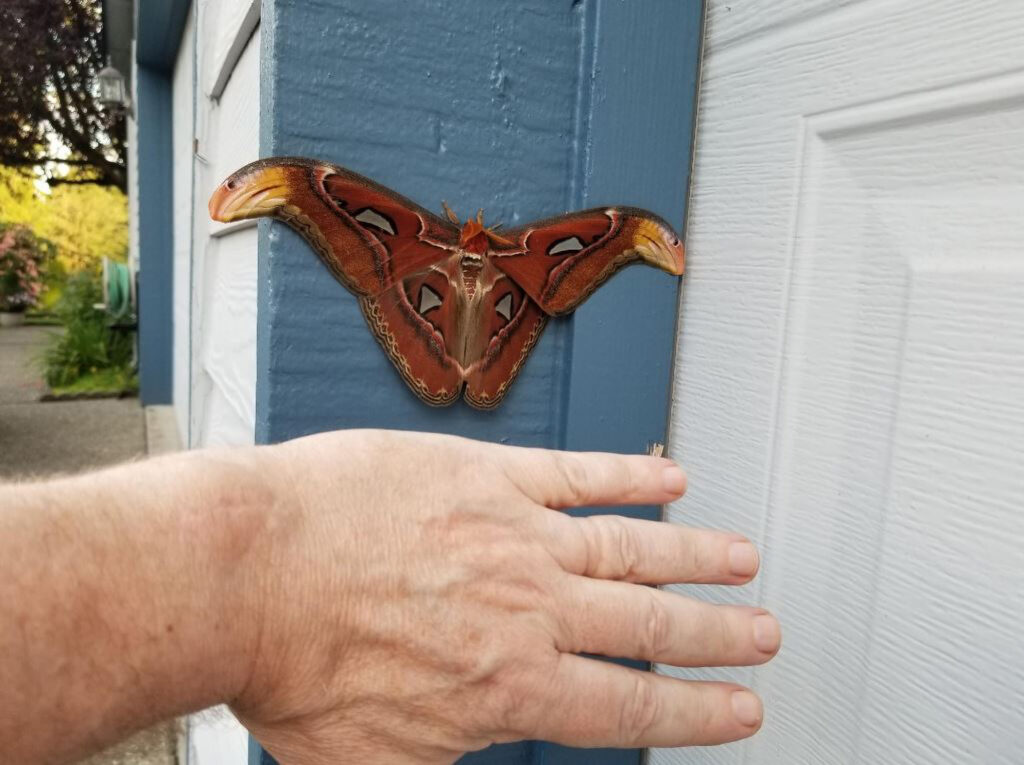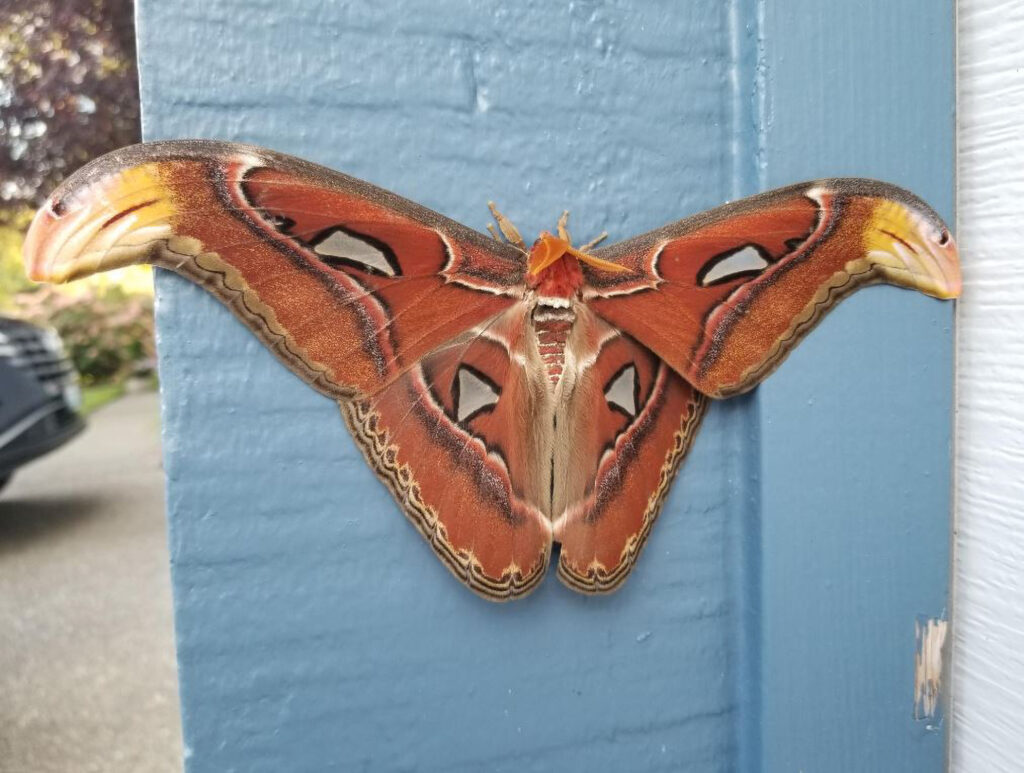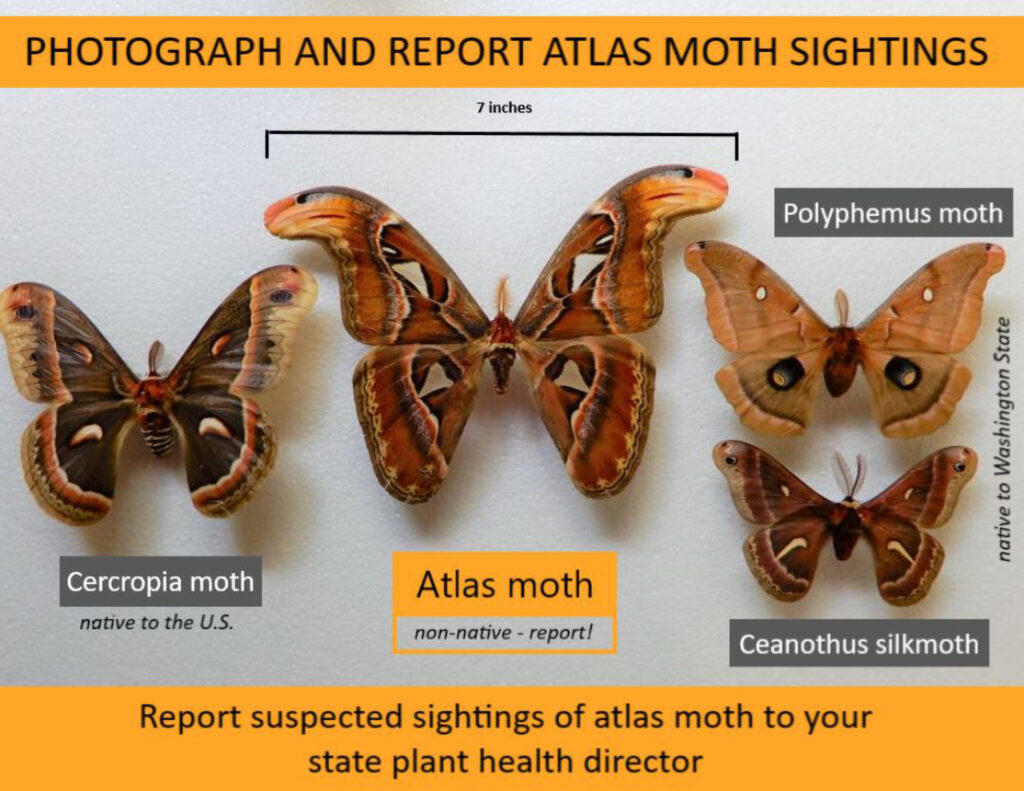BIG ATLAS: Massive Moth With 10-Inch Wingspan Found In USA For 1st Time
This massive moth with a 10-inch wingspan has been found in the USA for the first time.
The revelation was made by the Washington State Department of Agriculture (WSDA), which said in a statement obtained by Newsflash after it was first released on 5th August and updated on 17th August that “Washington State entomologists are asking the public to report sightings of the atlas moth after one was recently discovered in Bellevue.”
Bellevue is a city in Washington state, located across Lake Washington from the city of Seattle.

The WSDA added: “There are no known traps for atlas moths, so WSDA is hoping to determine whether there are additional moths in the area based on public reports. With this single atlas moth detection only, there is no evidence that an atlas moth population is established in Washington.”
The WSDA said that locals should photograph, catch and report any atlas moths they come across, adding that they pose no threat to the public.
Sven Spichiger, WSDA Managing Entomologist, said: “This is a ‘gee-whiz’ type of insect because it is so large.”
He added: “Even if you aren’t on the lookout for insects, this is the type that people get their phones out and take a picture of – they are that striking.”
The WSDA said that locals can send photos of any atlas moths they come across to pestprogram@agr.wa.gov “for identification and include the location where it was spotted.”

The WSDA added: “While there are no reports of atlas moth anywhere else in the US, if you believe you’ve found it outside of Washington State, please take a picture of it, note the location, and report it to the State Plant Regulatory Official or State Plant Health Director in your state.”
The WSDA said that the moth had initially been reported to the WSDA by an unnamed University of Washington professor on 7th July.
The statement added: “WSDA entomologists identified it as an atlas moth and sent it to USDA for confirmation, which is the standard process for new pest detections. USDA’s Animal and Plant Health Investigation Service confirmed the specimen as an atlas moth on 27th July and it is believed to be the first confirmed detection of the moth in the United States.”
The WSDA said that it is illegal to keep the moths or to breed them. The government agency said: “One of the world’s largest known moths with a wingspan of up to almost 10 inches, it is also a federally quarantined pest – meaning it is illegal to obtain, harbor, rear, or sell live moths whether adults, eggs, larvae, or pupae without a permit from USDA. USDA has more information about permits on its invertebrate pets web page. While there is minimal research about the moth, entomologists believe host plants may include apple and cherry.”
Spichiger said: “This is normally a tropical moth. We are not sure it could survive here.”

He added: “USDA is gathering available scientific and technical information about this moth and will provide response recommendations, but in the meantime, we hope residents will help us learn if this was a one-off escapee or whether there might indeed be a population in the area.”
Atlas moths (Attacus atlas) are typically found in tropical climates. They can mainly be found in dry tropical forests and shrublands in south-east Asia and in Borneo.
An Atlas moth was spotted in Ramsbotton in the UK in 2012, according to the BBC.



